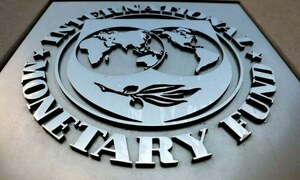With rising non-performing loans and a growing number of businesses becoming sick, due to exogenous factors or management weaknesses, it is indeed a challenge for economic managers to ensure that businesses do not shut down and employees laid off.
It appears that there is a growing realisation at the Securities and Exchange Commission of Pakistan (SECP) of this stark reality, which is reflected in the priority shift from its pre-occupation with the capital market, as it seeks amendment in laws, and change in the rules and regulations to facilitate the rehabilitation of sick businesses through acquisition and mergers.
According to a report in this newspaper, SECP has lowered the mandatory offer size from 90 to 62.5 percent of voting shares to facilitate a change in ownership of sick units and creating an investment friendly environment in the country. SECP is already working on a bankruptcy law - Corporate Rehabilitation Act - wherein it aims to also create a Resolution Trust Corporation (RTC) to undertake deep operational restructuring through the merger of similar kind of units, or even units exhibiting synergy in a particular area.
RTC would be different from the now-defunct CIRC, which was created to clean the balance sheets of nationalised banks - under privatisation. It acted as an auction house for the acquisition of assets, against the issuance of government bonds. RTC would be different. It would need to undertake the unsavoury act of vulture capital. Rs 10 billion have been provided by the government in the Budget FY 2009-10. It would be a somewhat similar system, as employed in South East Asia, after the last financial crisis to save industries and jobs.
The foremost aim of any law should be to enable an industry to remain competitive and efficient. Obviously, in any kind of restructuring, the involvement of creditors, ie the banks is a must. Banks have to determine whether the sponsors or the management in a restructured entity need to be changed.
Obviously, if the companies' troubles emanate due to exogenous reasons, ie beyond the control of sponsors/management, then there is no earthly reason for a change. According to SECP relaxed rules for substantial acquisition of voting shares and take-over, the acquiree after signing for an 'x' amount of shares from a sponsor, has to offer to make a public offer of 50 percent of the remaining shares. This is meant to give minority shareholders an option to sell as well.
This may appear profoundly plausible in case of industrial undertakings. However, it is contrary to the central bank (SBP) rules to keep sponsors restricted to 51 percent shareholding. As it is, the system in vogue for banks in Pakistan is not aligned with good practices, whereby sponsor/family shareholding restriction is much lower. It appears both the regulators are not on the same page in this regard and some kind of middle ground needs to be found out at the earliest.
BR100
8,541
Decreased By
-20.4 (-0.24%)
BR30
25,684
Decreased By
-151.8 (-0.59%)
KSE100
81,292
Decreased By
-365.8 (-0.45%)
KSE30
25,810
Decreased By
-64.8 (-0.25%)




















Comments
Comments are closed.